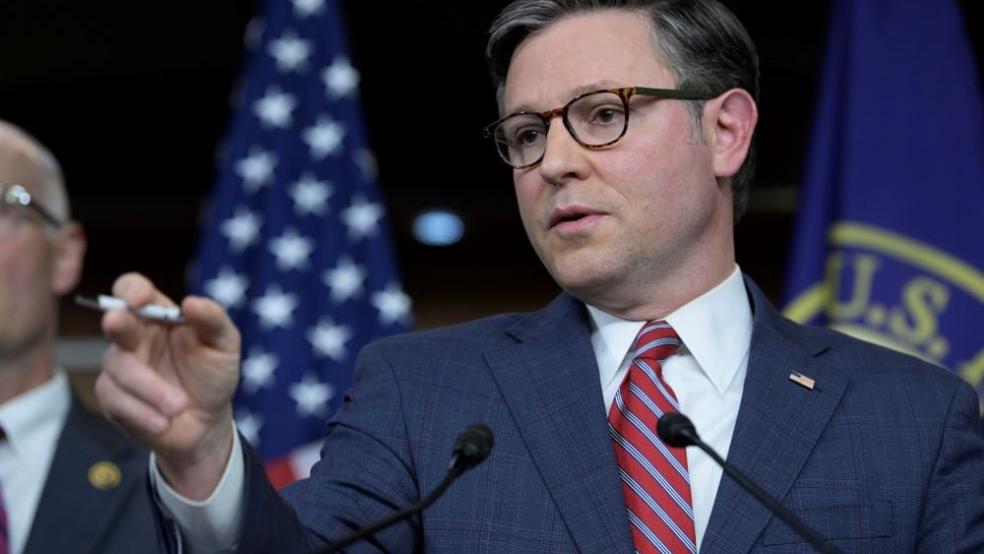House Speaker Mike Johnson scrapped a planned vote Wednesday on a six-month stopgap spending bill ahead of a September 30 deadline.
Congress must fund the government before October 1 to avoid a partial government shutdown just ahead of the November elections. Yet Johnson’s plan, which includes legislation requiring proof of citizenship from people registering to vote in federal elections, has faced increasing opposition from members of his own party. Congressional Democrats and the White House were also lined up against it, in part because of the voting measure, which they say is unnecessary and could keep eligible voters from the ballot box.
In short, the bill appeared doomed to fail and deliver an embarrassing blow to GOP leaders, who opted to pull it instead. The episode is just the latest in a string of budget and spending battles in which Republicans seek leverage or concessions only to see their strategy undercut by intraparty divisions.
“No vote today because we’re in the consensus-building business here in Congress,” Johnson told reporters this afternoon. “With small majorities that’s what you do. That’s what I’ve been doing since I became speaker. We’re having thoughtful conversations, family conversations within the Republican conference, and I believe we’ll get there. So people have concerns about all sorts of things. That ‘s how the process works and sometimes it takes a little more time.”
It's not clear that more time will make any difference though, as some conservatives in Johnson’s conference are steadfastly opposed to any short-term spending bill, preferring that lawmakers work on passing the required full-year appropriations measures.
Johnson’s plan calls for extending current funding levels through March 28. Conservatives objected to the continuation of existing spending levels in addition to their objection to the use of stopgap measures known as continuing resolutions. Defense hawks, meanwhile, have warned that keeping spending flat would undermine the military.
“The repercussions of Congress failing to pass regular appropriations legislation for the first half of [fiscal] 2025 would be devastating to our readiness and ability to execute the National Defense Strategy,” Defense Secretary Lloyd Austin warned in letters to top congressional appropriators over the weekend.
What’s next: Johnson may try to push ahead with his bill, but no partisan Republican plan can get through the Democratic-led Senate and White House.
“Our House Republican colleagues are struggling with a bad case of Groundhog Day,” Senate Majority Leader Chuck Schumer said yesterday, before the House vote was postponed. “Instead, Republicans should work with Democrats on a bipartisan package, one that has input from both sides, one that avoids harmful cuts, one that is free of poison pills. We're ready to sit down and work them immediately.”
Similar recent standoffs have ended with bipartisan bills that anger right-wing Republicans, and that may still be the most likely outcome, given the political risks involved with allowing a shutdown. But former President Donald Trump has complicated the path to such a resolution by urging Republicans to “get absolute assurances on Election Security” before passing any spending bill. That puts Johnson in an awkward position as he tries to both avoid a shutdown and keep his job.





